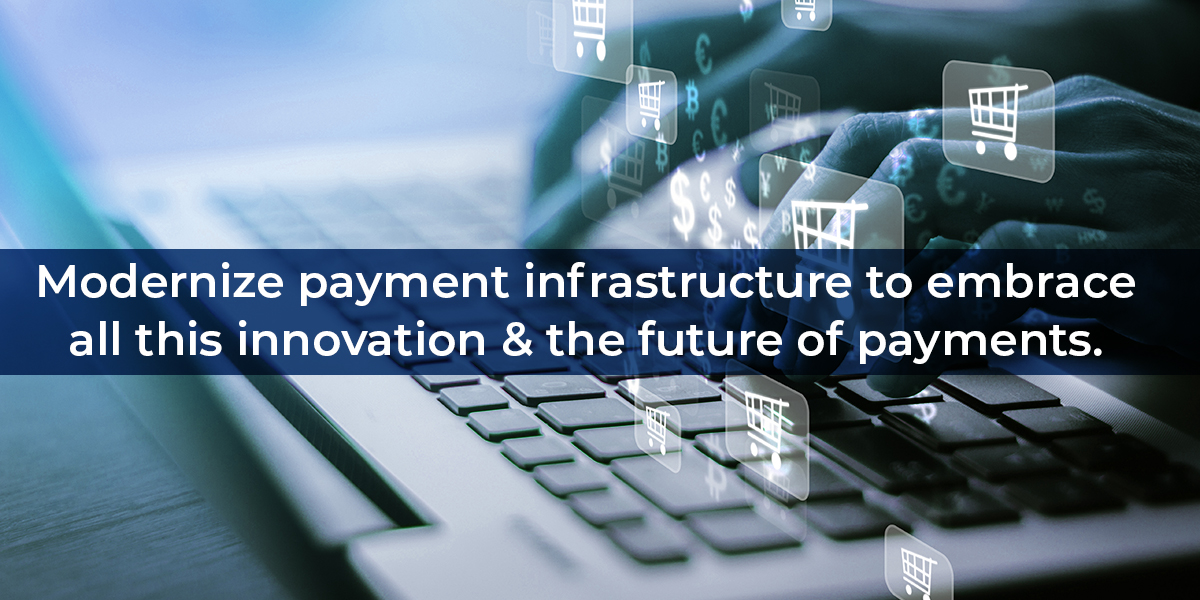Growing immigration and disappearing economic borders are creating an urgent need for faster, secure and simplified cross-border payments. International payments is one of the largest opportunities in the financial services space, expected to approach $3 Trillion by 2023.
Although cross-border payments are mostly driven by B2B transactions, the amount of small value payments that exist in the category is not one to be overlooked. Small value payments are amounts ranging from one dollar to $5,000. And they account for an enormous piece of the cross-border payments pie.
In North America alone, Peer-to-Peer payments total more than $173 Billion in remittance flows and within the retail segment specifically, cross-border e-commerce sales are expected to surpass $900 Billion next year.
But while e-commerce payments are typically managed with credit cards or platforms like Paypal, there are many obstacles in other sectors that millions of people face when it comes to sending small value payments internationally.
The examples are plentiful: Businesses trying to make travel payments or ongoing international payroll transfers and commission payments; an international student paying to study abroad; an individual trying to send money back home to family on a monthly basis; or even paying a bill overseas.
In increasing cases, the demand for simple and convenient payment options only continues to grow. And while basic e-transfers have long been the norm for sending funds domestically, sending funds across borders has remained a costly and tedious endeavor.
Take for example making a bill payment in a different country; while domestically a simple task, it becomes a far bigger endeavor when crossing a border is involved, resulting in headaches for the payer, and potential losses for the payee due to fluctuating currency rates and payment latency.
Or what about e-gifting? With cash disappearing, gone are the days of a $20 bill in a birthday card from Grandma. E-gifts represent an enormous growth opportunity for digital banking, if only they can make the costs palatable for customers.
Whether paying bills, sending money abroad, or paying tuition, historically customers wanting to make routine small value cross border payments have been required to either open bank accounts in other countries, or use expensive bank drafts, wire transfers or currency exchanges to settle such transactions, all of which come at a steep cost and inconvenience to all parties involved.
This is part of the challenge, but the pain is magnified the smaller the amount: While a costly wire transfer can be factored into the cost of doing business for corporations, for individuals seeking to send small-value amounts internationally and on a regular basis, a new solution is long overdue.
Thankfully, fintechs are emerging to simplify various types of cross-border payments and provide a great customer experience.
Peer-to-Peer (P2P) payments are booming thanks to improving technology, and fintechs around the world are jumping on the trend to offer the service across borders. African startup Chipper is partnering with Paystack to bring its P2P solution to Nigeria. Meanwhile, Visa has recently announced it is teaming with MoneyGram to leverage debit push payments for P2P payments in the US, with plans to eventually expand the service internationally.
A number of outlets are cracking the student payments space as well, enabling international students to pay their tuition directly to the institution, and facilitating transfers as needed for books, meals and living expenses. International students contribute $42 Billion to the US economy alone, representing a market with immense growth potential.
Fintech’s like Buckzy Payments Inc. have emerged providing real-time network for enabling financial institutions and fintechs, helping remove the friction that exists within cross border payments, including; peer-to-peer transfers, international bill payments, and student payments by making customer settlements in real-time, 24×7, 365 days a year delivering consistent real-time settlement capabilities and experience. Buckzy enables its customers to send to any bank account or third-party wallet globally and maintain multi-currency virtual accounts.
With Trillions of dollars at stake, small value payments are a massive opportunity in the cross border space.
Banks and financial institutions have seriously lagged on international payments, and while steps are being taken to provide solutions, the market is far outpacing the progress. With small value and micro-transactions clearly emerging as a multi-trillion-dollar opportunity, banks need to offer realistic and cost-sensitive payment products if they hope to acquire and retain customers.
The race is on to modernize payment infrastructure in order to embrace all this innovation and with it, the future of payments.

